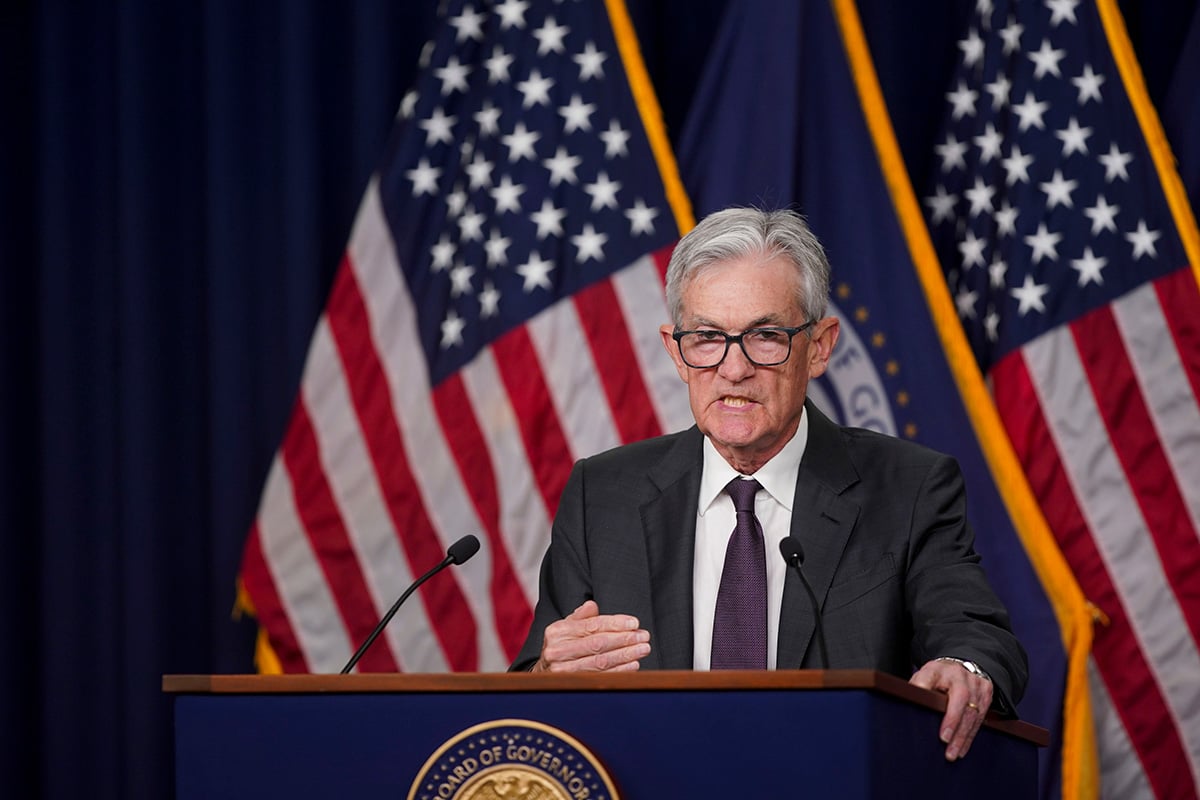In the euro area, the course seems to be set for a pick-up in economic momentum.
Unemployment in the 19-nation region remained at the lowest level in more than seven years in November as Germany reported a second consecutive increase in industrial output and French business confidence improved. The data follow a survey of purchasing managers out last week that suggested the economy grew at the fastest pace since 2011 at the end of last year.
After months of muddling through, evidence is building that the euro area has finally embarked on what European Central Bank President Mario Draghi calls a “moderate but firming recovery.” Unemployment has been decreasing steadily, while a surge in economic confidence to the highest level in more than five years signals companies and households expect the recovery to continue in a year of political uncertainty.
“It is no wonder that consumer confidence is booming, as almost 1 million people left unemployment in the euro zone in the past year,” said Bert Colijn, senior euro-area economist at ING Bank NV in Amsterdam. “As businesses are indicating that hiring will remain strong in the coming months, it seems likely that job growth will continue to provide tailwinds for the economic recovery.”
Euro-area joblessness held at 9.8% in November, the European Union's statistics office in Luxembourg said on Monday. That's in line with economists' estimates in a Bloomberg survey. The lowest unemployment rate in the region — 4.1% — was recorded in Germany, while joblessness in Spain was 19.2%. In Greece, 23.1% were out of work in September, the latest month for which data are available.
Despite these large differences, the region's unemployment rate has worked off roughly half of the increase it saw since the start of the financial crisis in 2008, according to Marco Protopapa, an economist at JP Morgan Securities in London.
“Looking forward, the relevant surveys through December point to further gains in the labor market, which have been fairly aligned with GDP growth over 2016,” he said in a note.
ECB President Mario Draghi has repeatedly urged governments to implement reforms to reduce structural unemployment and boost growth potential, a call he also made last month after policy makers extended quantitative easing through the end of 2017. But with ruling parties in Germany, France and Netherlands trying to fend off threats from populist movements as they face general elections in the coming months, action may be limited.
“The unemployment rate should continue to decline in the coming months,” said Holger Sandte, chief European analyst at Nordea Markets in Copenhagen. Sentiments indicators “look pretty decent and unless politics gets in the way then the chances are not that bad for the labor market.”
In Italy, unemployment unexpectedly increased to a 17-month high of 11.9% in November, the month before a referendum on constitutional reform toppled the government.
The French economy is strengthening. The Bank of France's manufacturing confidence index rose 1 point to 102 in December, the highest since May 2011. The reading suggests the French economy expanded 0.4% in the fourth quarter, up from 0.2% in the previous three months, according to the central bank.
In Germany, Europe's largest economy, industrial production gained 0.4% from October, when it advanced a revised 0.5%, the Economy Ministry in Berlin said on Monday. A separate report from the Federal Statistics Office showed exports increased 3.9% in November, with imports up 3.5%.
“Germany is doing well — the economy is growing fast enough to bolster employment and slow enough to avoid inflationary tensions,” said Andreas Scheuerle, an economist at Dekabank in Frankfurt. “If it wasn't for the rest of the world, it would be in an optimal position.”
Bloomberg News
Complete your profile to continue reading and get FREE access to Treasury & Risk, part of your ALM digital membership.
Your access to unlimited Treasury & Risk content isn’t changing.
Once you are an ALM digital member, you’ll receive:
- Thought leadership on regulatory changes, economic trends, corporate success stories, and tactical solutions for treasurers, CFOs, risk managers, controllers, and other finance professionals
- Informative weekly newsletter featuring news, analysis, real-world case studies, and other critical content
- Educational webcasts, white papers, and ebooks from industry thought leaders
- Critical coverage of the employee benefits and financial advisory markets on our other ALM sites, PropertyCasualty360 and ThinkAdvisor
Already have an account? Sign In Now
*May exclude premium content© 2025 ALM Global, LLC, All Rights Reserved. Request academic re-use from www.copyright.com. All other uses, submit a request to [email protected]. For more information visit Asset & Logo Licensing.





